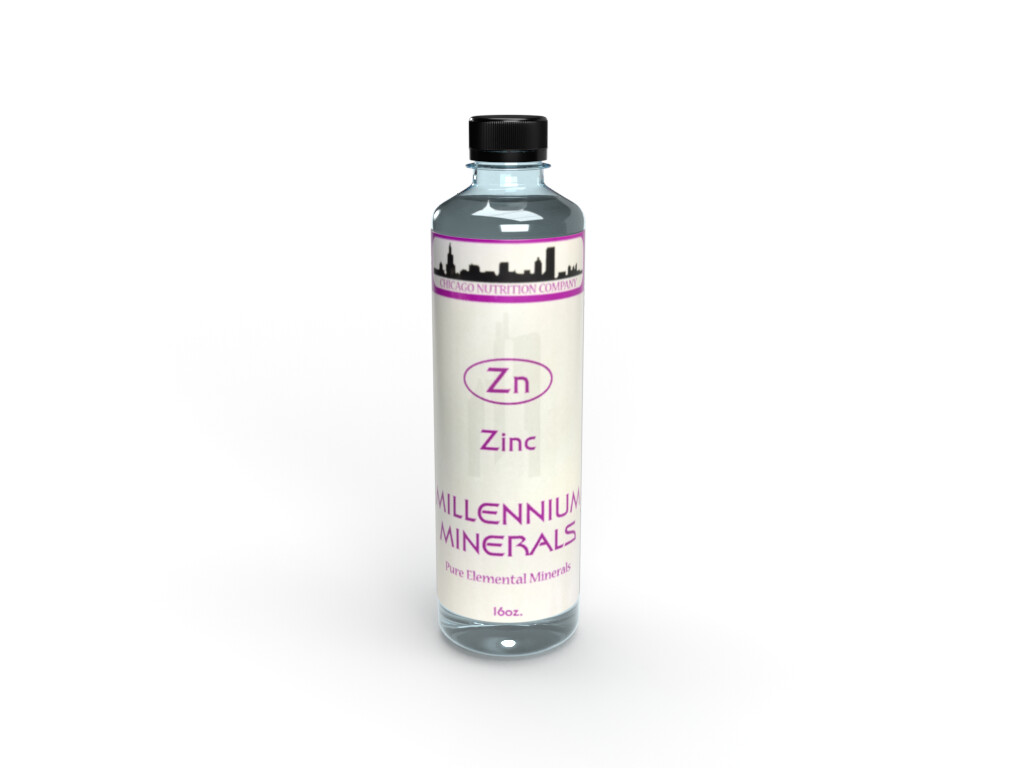Size: 16 oz.
*Zinc 300 +/- parts per million
A deficiency of Zinc can lead to a wide variety of degenerative diseases and illnesses. Zinc deficiency is common due to depletion of our soil and losses associated with food processing. Zinc aids in: proper assimilation of vitamins, normal growth and development, maintenance of body tissues, sexual function, boosts the immune system, chemical detoxification, synthesis of DNA, and helps reduce healing time after surgery.
Zinc is an anti-oxidant and must be in proper balance to assist some 25 enzymes in various functions involving digestion, metabolism, and reproduction. In the 1800's, surgeons used zinc as an antiseptic/antibiotic after surgery and it was noted for its healing properties. Lack of zinc in pregnant women can result in numerous birth defects such as: Downs Syndrome, cleft lip, spina bifida, clubbed limbs, hiatal hernia, and umbilical hernias.
Zinc is found in all the body fluids including the moisture in the eyes, lungs, nose, urine, and saliva. Because zinc moves through all the fluids in the body, it creates a defense against infection-causing bacteria and viruses trying to enter the body and stops bacterial and viral replication. Zinc is stored in the thyroid, hair, nails, white blood corpuscles, and parts of the eyes.
Symptoms of a zinc deficiency:
- Acne
- Alcoholism
- Alzheimer's
- Anemia
- Angina
- Anorexia & Bulimia
- Anthrax
- Birth Defects
- Body Odor
- Free Radical Damage
- Herpes
- Hypertension
- Hair Loss
- Infertility
- Infection
- Libido
- Loss of Smell
- Miscarriages
Dosage: Adults: One teaspoon daily. Children: 1/4 to 1/2 teaspoon daily.
